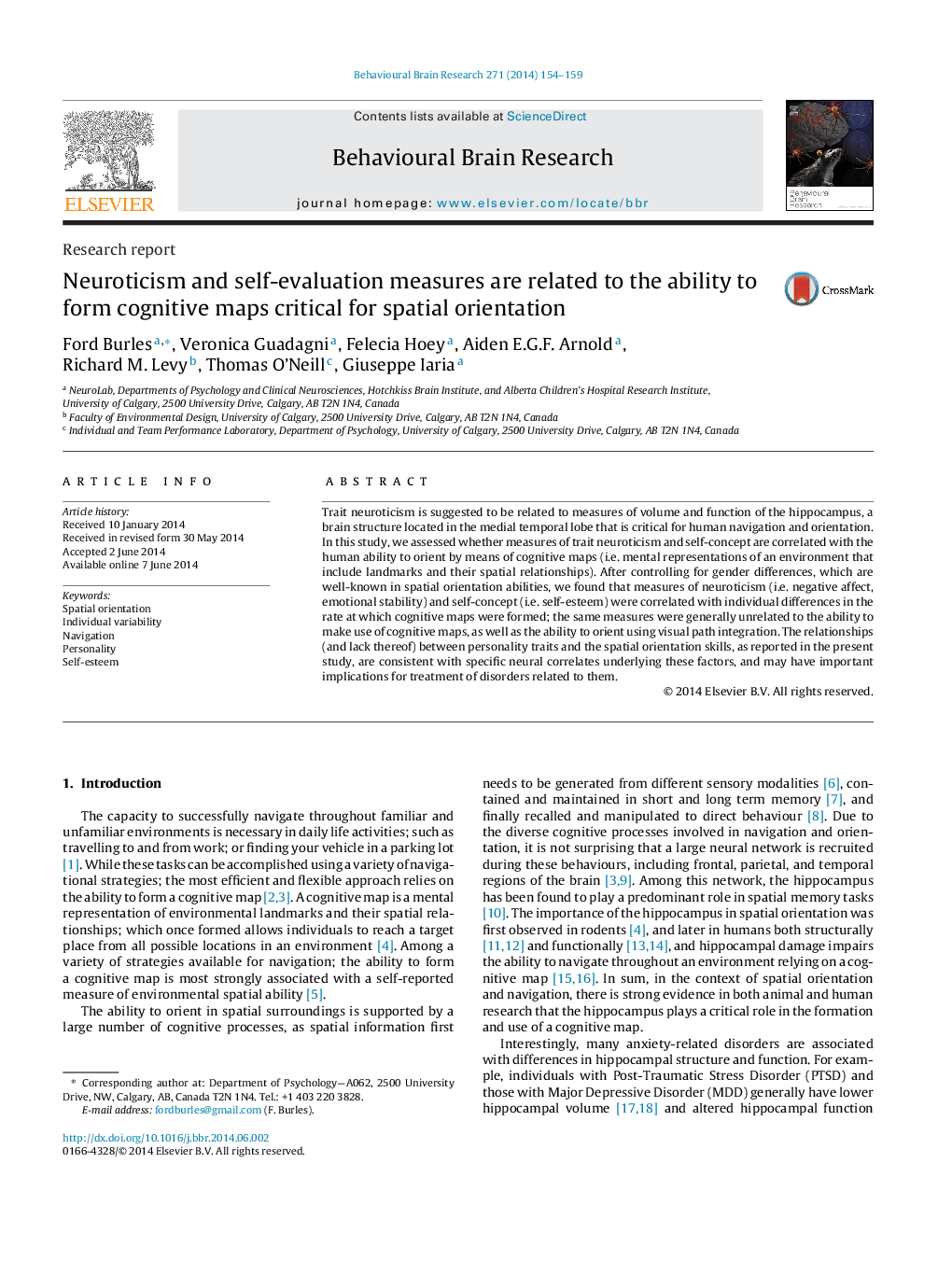| Article ID | Journal | Published Year | Pages | File Type |
|---|---|---|---|---|
| 6258008 | Behavioural Brain Research | 2014 | 6 Pages |
Trait neuroticism is suggested to be related to measures of volume and function of the hippocampus, a brain structure located in the medial temporal lobe that is critical for human navigation and orientation. In this study, we assessed whether measures of trait neuroticism and self-concept are correlated with the human ability to orient by means of cognitive maps (i.e. mental representations of an environment that include landmarks and their spatial relationships). After controlling for gender differences, which are well-known in spatial orientation abilities, we found that measures of neuroticism (i.e. negative affect, emotional stability) and self-concept (i.e. self-esteem) were correlated with individual differences in the rate at which cognitive maps were formed; the same measures were generally unrelated to the ability to make use of cognitive maps, as well as the ability to orient using visual path integration. The relationships (and lack thereof) between personality traits and the spatial orientation skills, as reported in the present study, are consistent with specific neural correlates underlying these factors, and may have important implications for treatment of disorders related to them.
